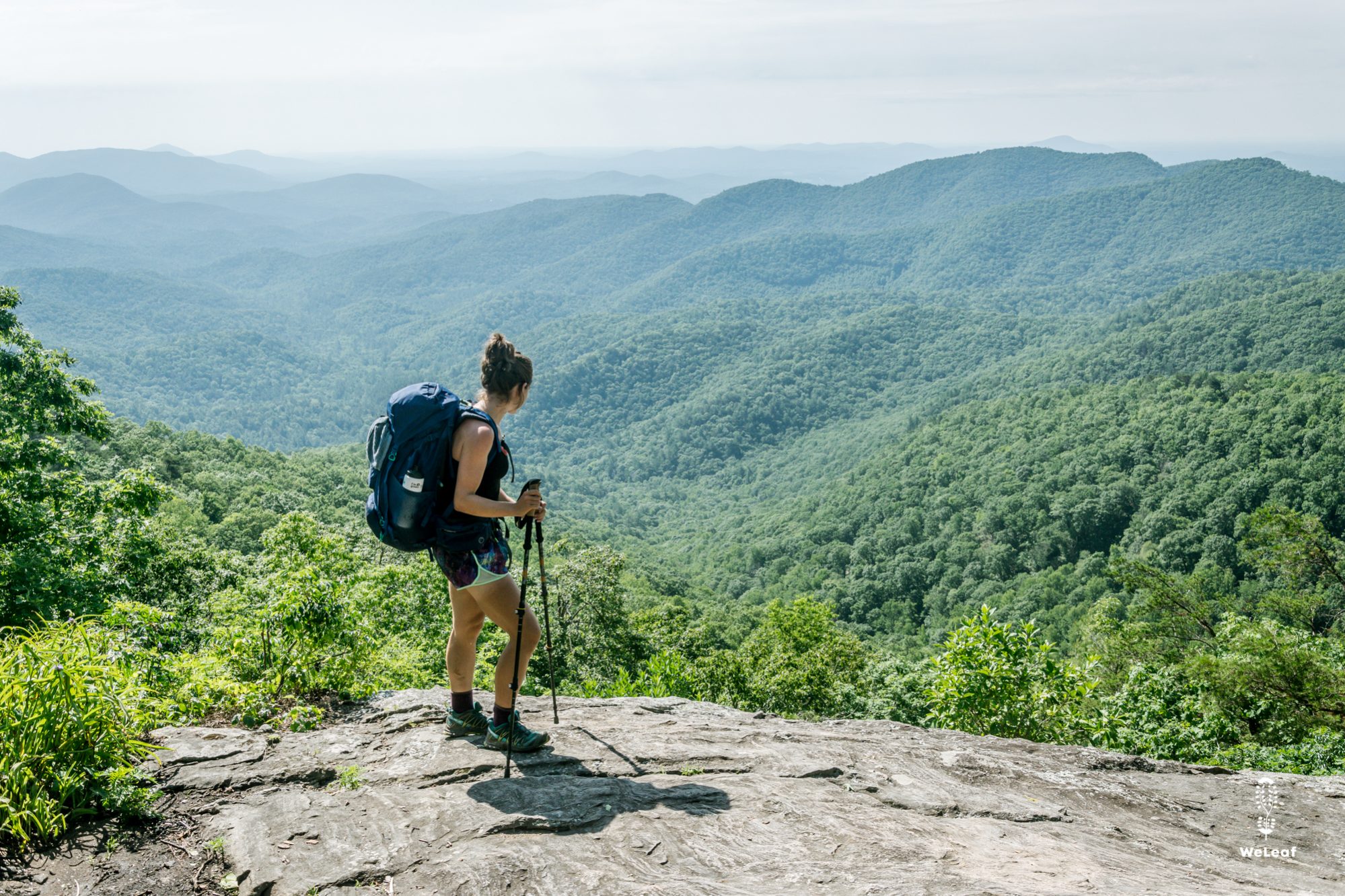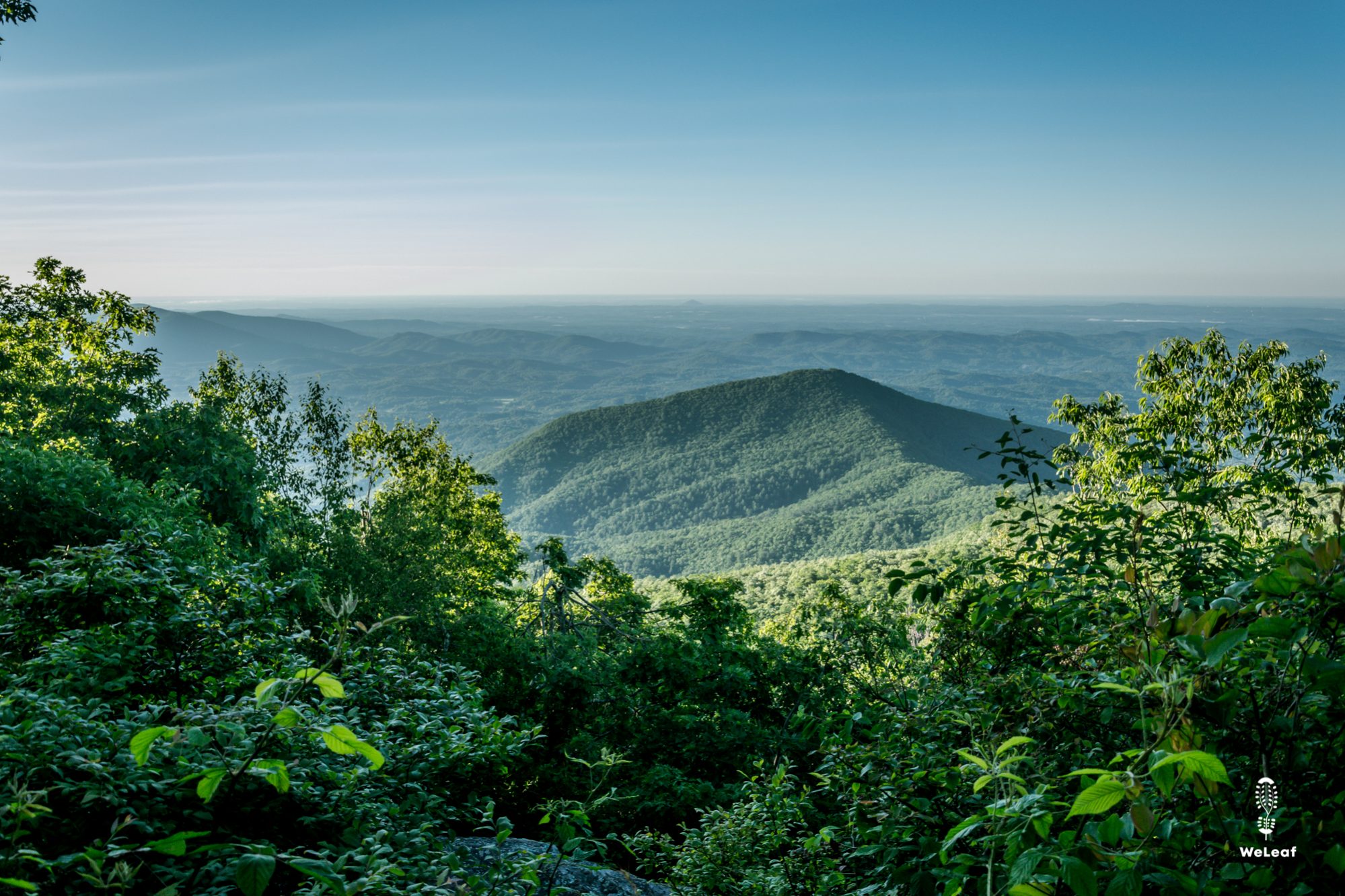
Living in the woods

Hiking 1.000 kilometers
July 26, 2019
Trail angels
July 26, 2019
Monday June 10th - Gooch Mountain Shelter
The idea of the Appalachian Trail originated in 1921 when forestry engineer Benton MacKaye came up with the visionary idea of a long-distance hike in the eastern US. The entire trail should be based on volunteers and a small-scale economy that had to connect small farms and wilderness camps. MacKaye did not get much further than the visionary ideas until Myron Avery took care of the realization of the project. His ideas clashed with MacKaye's, but he was an approacher who could push aside the visionary. The trail was finished in 1937, but hardly any attention was paid to it. Americans can be won faster with fast food, mini golf and beautiful car routes. Between 1937 and 1969 there were only 59 registrations of a complete thru hike. It took until the 1970s for the trail to become known to the general public. In the 1990s, around 100 hikers tried to walk the entire Appalachian Trail from start to finish every year. There were more successful attempts in 2000 than in all 60 years before. The counter now stands at more than 20,000 with more than 3,000 walkers making the attempt every year, one third of whom are women. The oldest thru-hiker was 82 years old and even some blind people did the trail in one piece. The number of thru-hikers is nothing compared to the millions of people who visit the trail every year. Most of them are day visitors to the parking lot in the most popular parks, walk five hundred meters to the viewpoint, take twenty selfies and return satisfied to stop at the first roadside restaurant. No matter how popular the trail is, we see barely ten other walkers a day. For the most part we are alone in the green tunnel at the end of spring.
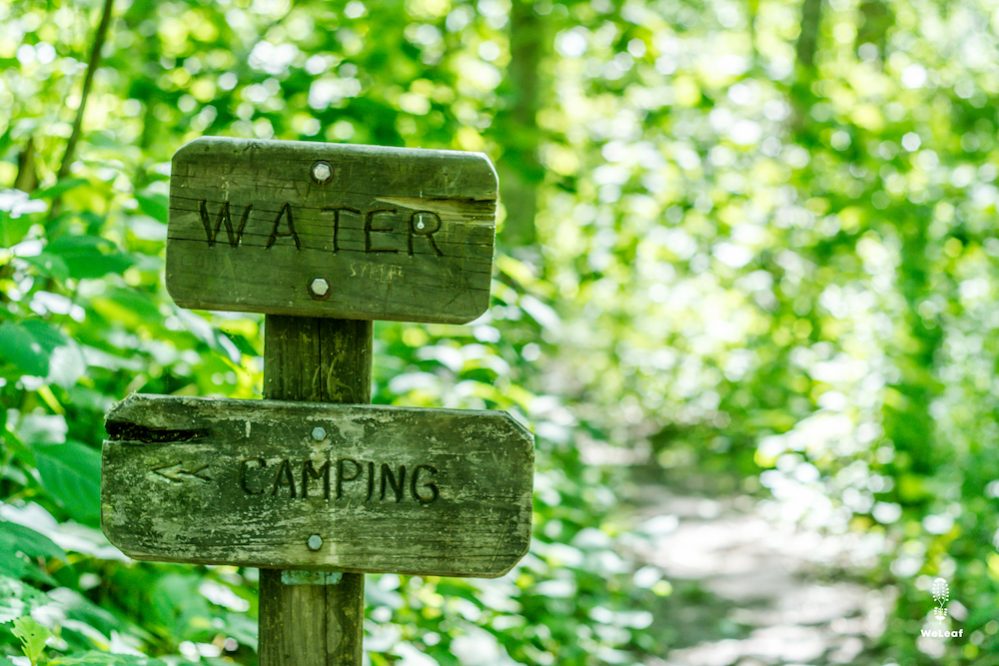
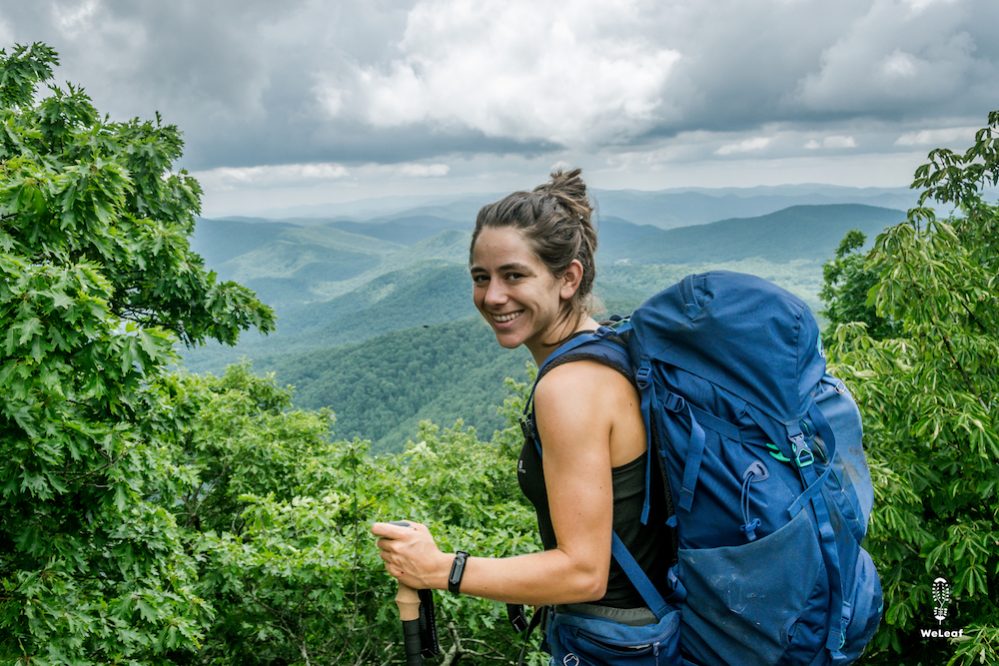
Outside the tunnel it is hot under the burning sun, but we are protected by the green foliage. Washing clothes and drying them after walking is almost impossible, because they do not dry in the damp forest. Our solar charger barely recharges and the jar of sunscreen is unaffected. The foliage not only protects us against the sun, but also against the rain. Thunderstorms are very likely in this time of the year and rain pours down in incredible amounts. The trees slow down the rain and eventually the water drips through the leaves, but by then we have the rain cover and our rain capes over our bags already.
The exhausted and drenched hiker who almost caught us on a naked showering in the rain on the first night is called Gary. He is 61 and walks the trail for a month. The second night we sleep in the same shelter again and he asks if he can walk with us the next day. We have already estimated his speed and it seems that he is walking well, an important criterion for us. Gary is puffing and panting, sweat gushing from his face, but he does everything to follow us. Gary is from Chicago and is an investigative journalist who worked in Iraq, Cuba and El Salvador. "I was in Cuba several times in jail, to scare off local people to not talk to me." He talks about it like it's nothing. He was never afraid, but he is scared to see a bear. He naturally speaks very loudly so any bear in a five kilometer radius has been on the run for a long time. We won't see a bear with Gary, but his company is pleasant. We walk 15.5 miles that day, almost 25 kilometers, which feels like a monster distance with twenty kilos on the back. Down in the valley, after three days, we arrive at Neels Gap, a legendary first stop for all thru hikers. Suddenly there is a black asphalt road with a lot of traffic, the first signs of civilisation after three days of forest. On the opposite side is a large wooden chalet where the trail runs straight through. It is the most strategic outdoor store in the world. Every year in March and April they are assured of 3,000 hikers who have just started their mission to reach Maine. The majority is poorly prepared and after three days knows what is missing in their packing, or what is far too heavy. It is very expensive, but a tired mind is easy to convince. We only fall for the frozen pizza that tastes particularly good, even after just three days.
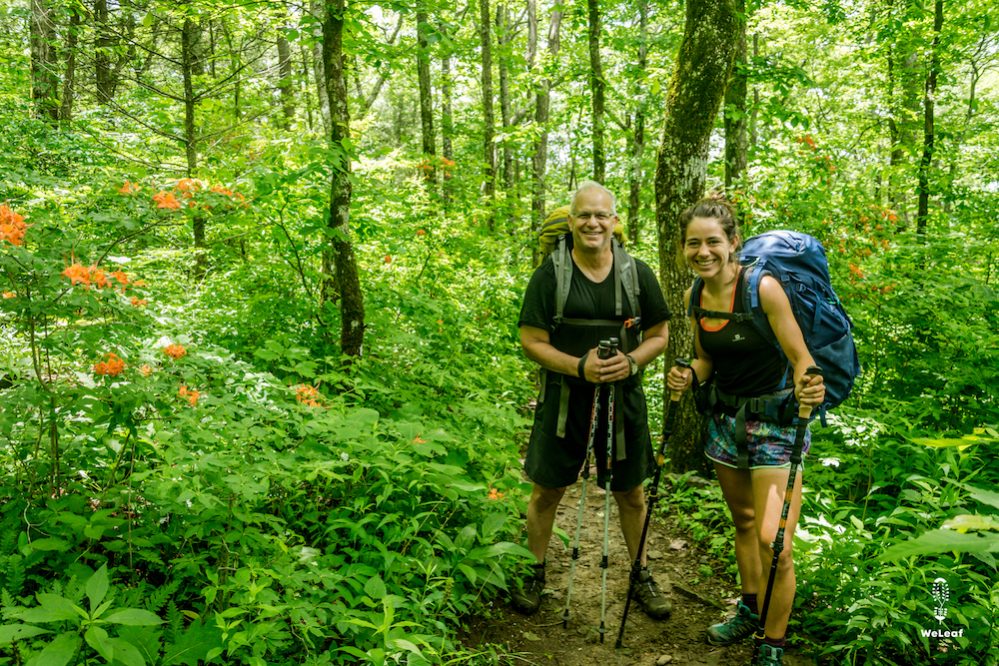
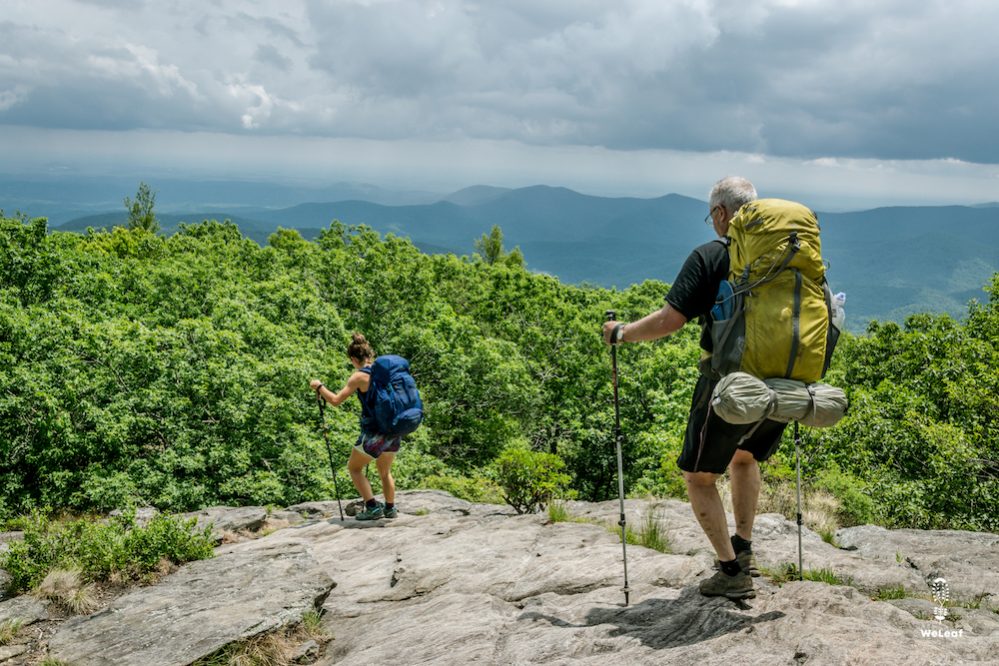
"Zoë and Olivier!" a big man shouts when we have just finished our pizza. He has long grey hair in a tail, with a full grey beard. His pants are full of paint stains and are half torn. He is accompanied by a small woman in a pink pyjama outfit. "Winton?" Olivier asks. Thanks to our last host in Atlanta we came in contact with Winton, the old owner of the outdoor store in Neels Gap. He will soon be our 'trail coach', an important support and help point during the entire hike. He comes to pick us up and takes us to his house.
Gary was sitting next to us when Winton called us.
"Do you also want to come?" asked Winton.
"No, no, I don't want to benefit from Zoe's and Olivier's contacts"
"That's the way the community works, man"
"Well, if you invite me," Gary finally shouted.
The three of us were stinking with sweat in the back seat near Winton. We thought we would sleep in the tent for fifty nights, but after two nights we will get a soft bed already. Unlike Winton's outfit and messy car, the house is a true paradise. The parents' old holiday home is hidden in the woods. It is more beautiful than the holiday home you dream of. The house is made entirely of wood and lies on a wooded slope after a long driveway that is asphalted. There are two floors with a large balcony with seats and hammocks. They rent out the house on Airbnb which explains why it is so nicely tidy. We are blessed again, not for the first time this trip.
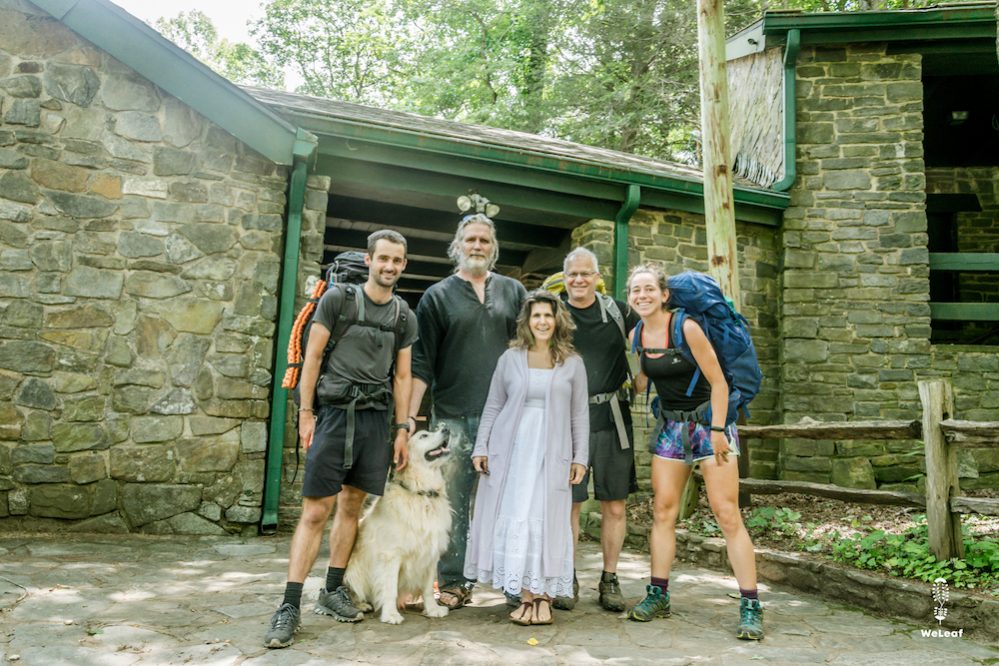
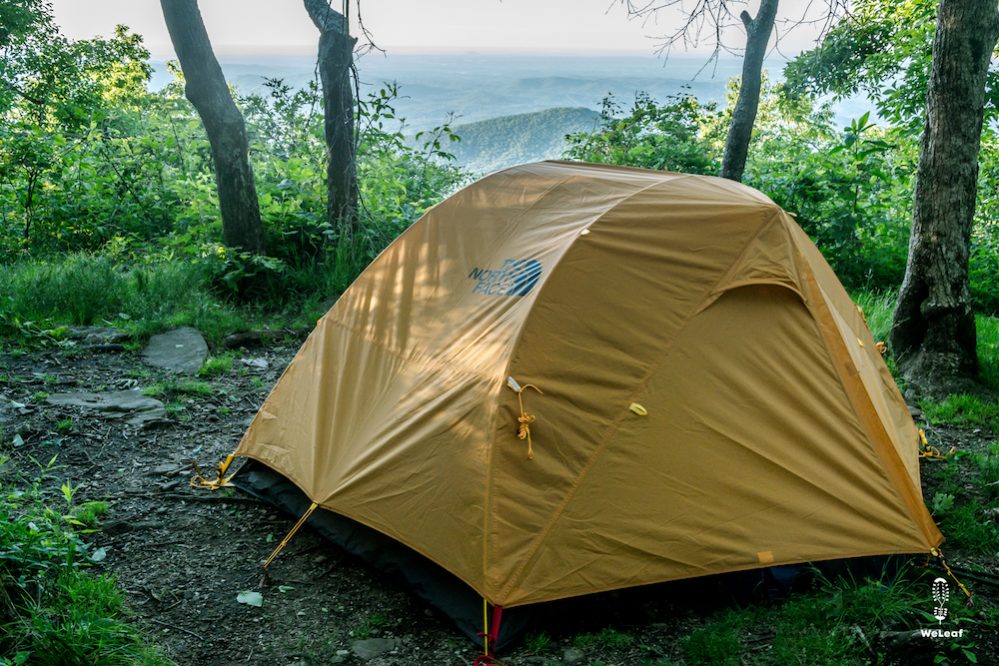
After a night in a soft bed and with washed clothes, we are back on the trail after noon. Today is Gary's birthday. For the first time in his life he does not celebrate it with his family, but with us on the trail. Just before we arrive at the shelter we wait for Gary, who is a bit behind. When he comes to us, there are tears in his eyes. "Are you okay?" Zoë asks. Sobbing he says 'it's my wife's birthday too today'. Gary's wife died of cancer four years ago. He bursts into tears and lets his emotions run. Zoë lays her hand on his shoulder. She thinks, how personal can I be with a man I just know? It is intuition, this emotion needs to be released. Zoë changed his attitude and gave him a big hug. She holds him for a long time. It is what was needed. A painful sob comes. His hands are still leaning into his walking sticks and he stamps them three times on the floor. In tearing words, he cries, "I miss her so much!” We can feel his pain directly in our heart. There we are, in the middle in the forest, with a man we know for two days who lets go of all his emotions. He cries for at least five minutes. We say nothing. We let his emotions go and are happy that we are there for him at the moment. It is beautiful and at the same time difficult to see how an adult man is having such a hard time. He cries out the last pieces of emotion and thanks us for the support. After that he quickly picks up his careless, strong attitude. We walk the last few meters to the shelter where we meet a few other hikers.
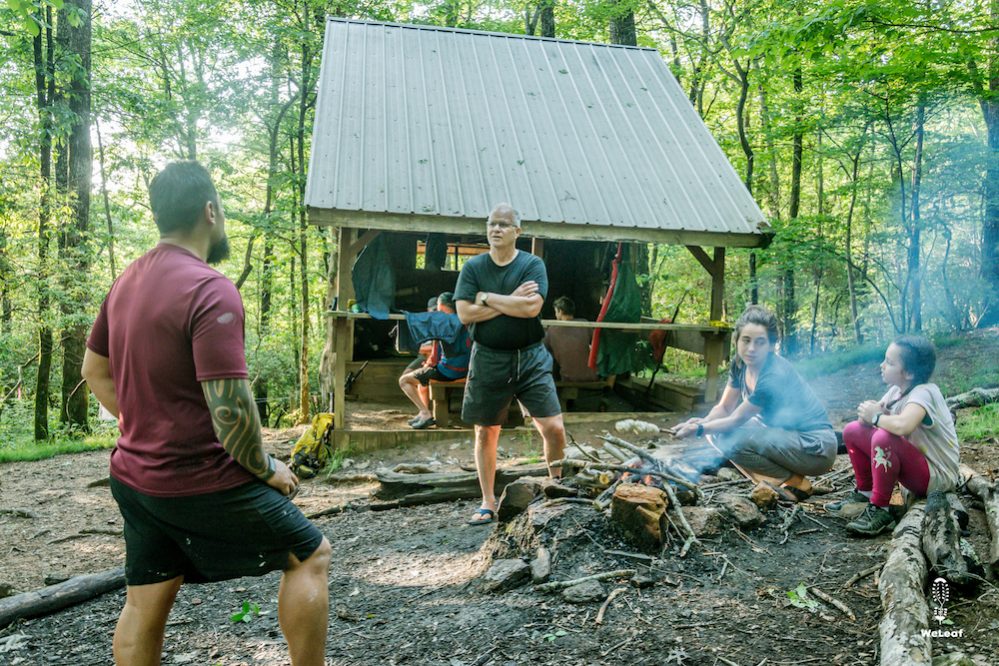
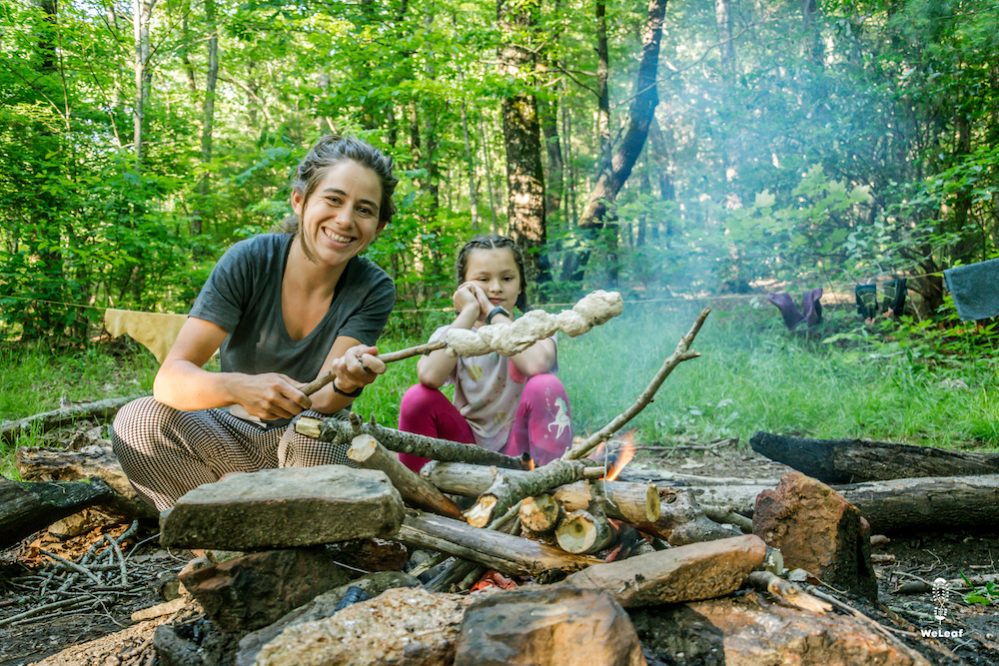
After two nights in a shelter we opt for the tent fifty meters next to it this evening. No creaking mats and a snoring Gary next to us. In the morning, Olivier and Gary drove together to the supermarket so we have a supply of fresh vegetables and tasty food. While Zoë has the entire table listening to our travel story, Olivier enjoys the fuel stove. Olivier is always the cook and is nowadays quite experienced in tasty camping meals. This evening pasta with cream sauce and vegetables is on the menu. When the first bowl of pasta appears on the table, Iwan looks up in surprise. "So much!" He is fifteen and walks with his mother for a week on the AT. His supper consists of a small bag of instant rice that doesn’t fill his bowl half. Jealous glances look at our trays when they see their own lean, and little nutritious meal. Most walkers only eat instant rice, pasta or noodles. Add some boiling water, wait five minutes and you're done. If we do that, we collapse like a pudding after a week. On the corner of the table is a ros girl, she is small and has a plump face with summer freckles. She says she walked the AT last year and lost fifty pounds (twenty-five kilos) in three months. She only ate twice a day and usually no more than a bag of noodles. That is 300 kCal, while you can easily use 4,000 on the walking day. She got a brain haemorrhage and was rescued. It took six months to recover and now she can finally continue the trail. This time she also eats while walking and even a double supper, two bags of noodles. We scoop up our second bowl of pasta and Iwan almost falls back. "There is more!" he laughs. We give him half a bowl which he patches up patiently. Soon we get our first trail name: 'chefs'.
Gary crawled the first nights in the tent without washing and with his wet clothes. He is full of chafing spots under his arms and between his legs. We say that we wash ourselves every day, which has been routine for more than two years. Through what we see with all other walkers we experience that we have a lot of experience with the outdoors. We know what it's like to take care of ourselves, keep us clean, eat well, keep us dry and enjoy ourselves. We are the only hikers who arrived in the afternoon with dry clothes. All the rest arrived soaked and, to our surprise, stuck in the wet clothes. A couple tried to make a fire, but they did not succeed. Thanks to the bushcraft course from Siegurd, we now know how to do it, although the wet forest after a week of rain is a good test. We manage and everyone can dry their socks around the fire. Zoë bakes bread and hands out a piece to everyone. We are a little proud that we can do this and that we can help others. Gary decides to take a day off the next day and take a lift from Unicoi Gap to Hiawassee, about 10 miles from the trail for a night in a hotel and some comfort. We walk on and hitchhike two days later from another point to Hiawassee for a new supply. It is again Winton who picks us up. "We missed you guys! On the trail we never say goodbye, we always say see you next time '. That is why he is our trail coach. This way we will survive those fifty days of walking we both think when we sit in the back seat on the way to Winton's house. Two days in a tent, a night in a bed, although that luxury will not be available throughout the complete trail.
